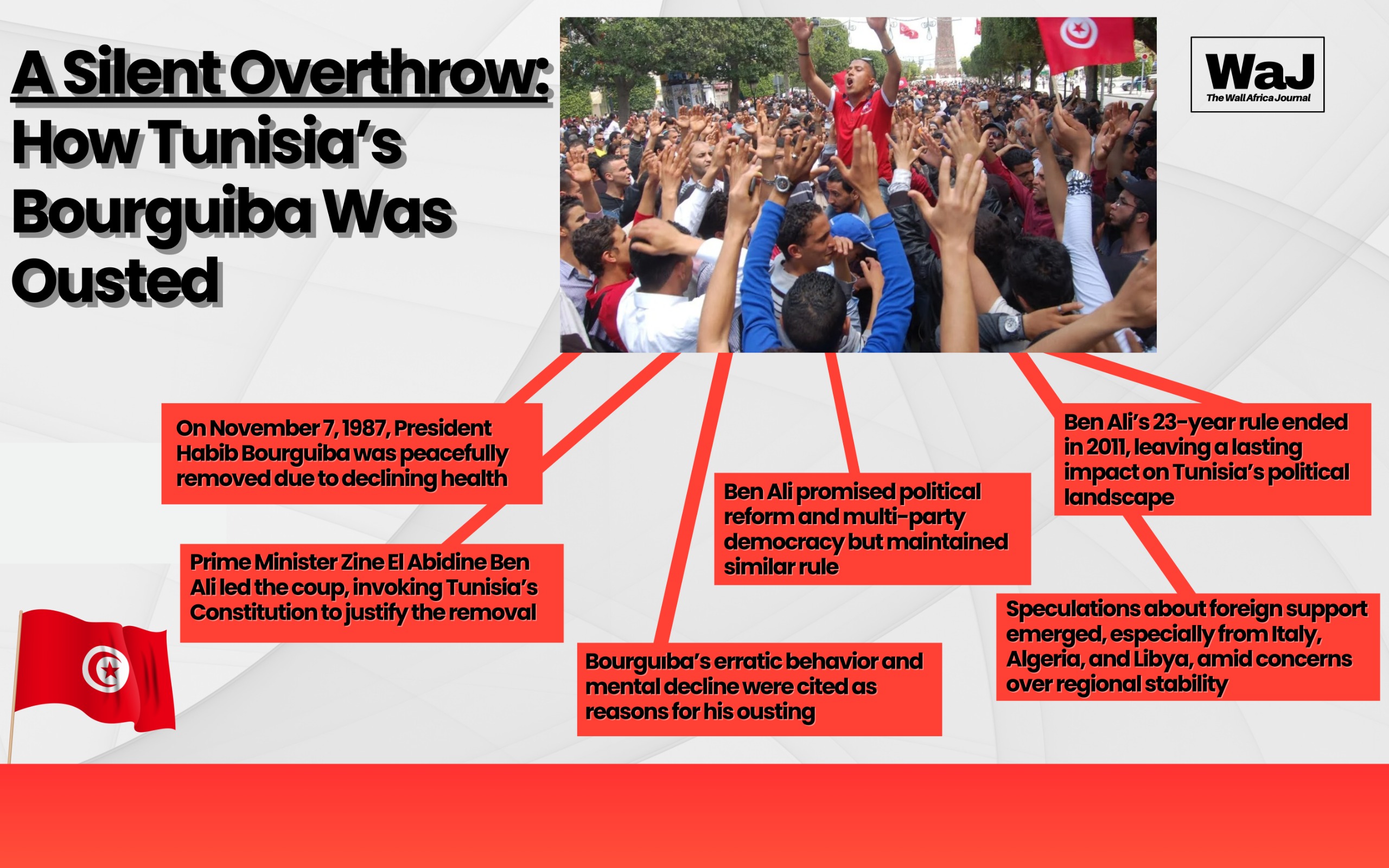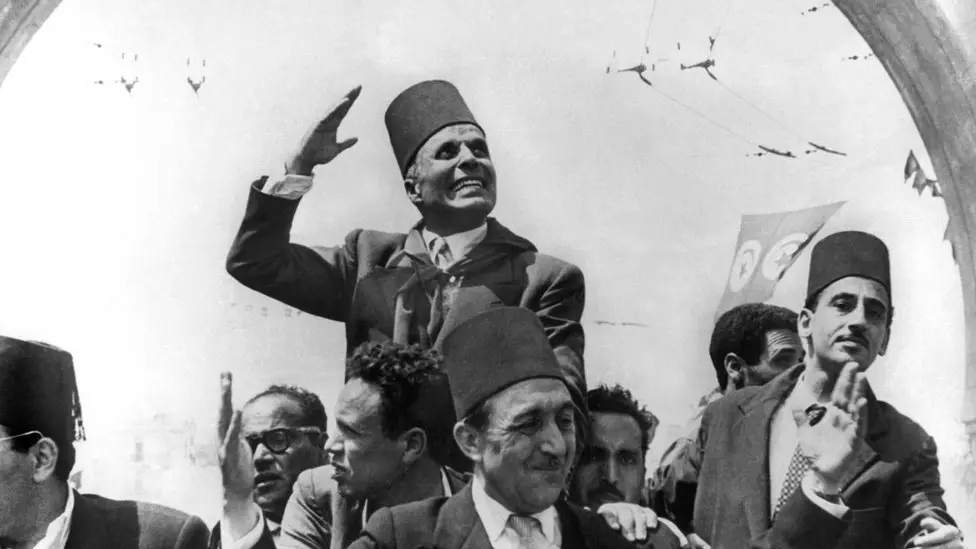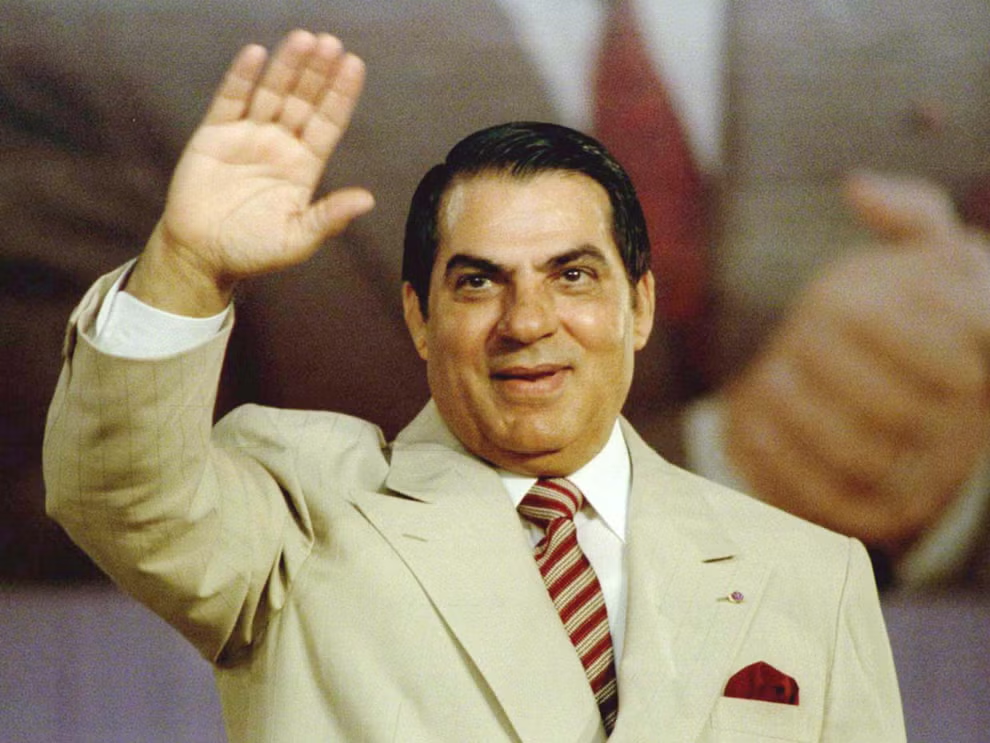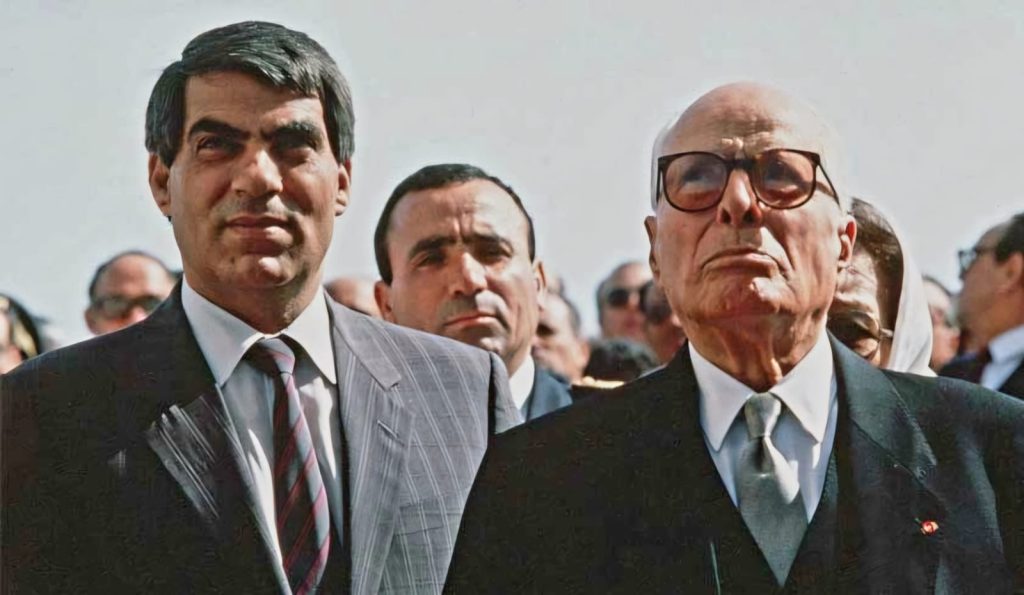November 7, 1987, marked a historic shift in Tunisia’s political landscape as long-time President Habib Bourguiba was peacefully removed from office, following concerns over his declining health. The bloodless coup was orchestrated by his newly appointed Prime Minister, Zine El Abidine Ben Ali, who quickly assumed leadership of the nation.
The coup was justified by Article 57 of the Tunisian Constitution, which allows for the removal of the president on grounds of incapacity. Bourguiba, who had ruled Tunisia since its independence from France in 1956, was 84 years old at the time of his ousting. His advancing age and erratic decision-making had raised alarm among political leaders and citizens alike. Reports indicate that a group of seven doctors, summoned on the night of November 6, 1987, declared Bourguiba mentally unfit to govern, citing moments of confusion and inconsistency in his behavior.

Declining Health and Political Instability
Bourguiba’s removal came after a series of concerning events. According to political journalist Mezri Haddad, Bourguiba had exhibited erratic behavior, including falling asleep during a meeting with a foreign official and abruptly firing a minister he had just appointed. Most troubling was Bourguiba’s insistence on reversing a court decision regarding Islamist leader Rached Ghannouchi and demanding the execution of 15 suspected Islamists. Political insiders feared that such drastic actions could plunge the country into unrest.
Ben Ali, who was entrusted with the task of stabilizing Tunisia, invoked the constitution to take power. Addressing the nation the following day, he emphasized the need for a modern political system. “In the times in which we live, it is no longer enough to tolerate presidencies for life or automatic successions,” Ben Ali stated, highlighting his commitment to a multi-party democracy.

International Involvement
While the coup was framed as a domestic issue driven by concerns over Bourguiba’s health, later revelations pointed to possible foreign involvement. Fulvio Martini, a former head of Italy’s intelligence services, claimed in a 1997 interview that Italian intelligence played a significant role in the coup’s planning. He explained that concerns over Tunisia’s instability, particularly from neighboring Algeria, led to diplomatic efforts to ensure a smooth transition. Martini suggested that Italian, Algerian, and Libyan authorities believed that Ben Ali would offer greater stability than Bourguiba, thus averting a potential regional crisis.
Former Italian Prime Minister Bettino Craxi, however, denied any direct Italian interference, despite his longstanding ties to the Tunisian political elite. Nevertheless, suspicions of foreign involvement linger, as Tunisia’s strategic location and political stability were of great importance to regional and European powers.
Aftermath of the Coup
Once in power, Ben Ali moved quickly to consolidate his position. He took control of the ruling Socialist Destourian Party, renaming it the Democratic Constitutional Rally, and held elections in 1989, which his party won. Despite his promises of political reform, Ben Ali’s rule mirrored that of his predecessor, and he remained in power for 23 years until the 2011 Tunisian Revolution led to his eventual downfall.

Bourguiba’s overthrow marked the end of an era in Tunisia, but it also set the stage for a long and complex period of political transitions. Though bloodless, the 1987 coup has left a lasting legacy in the country’s modern history, with questions about foreign influence and the limits of presidential power remaining relevant to this day.

